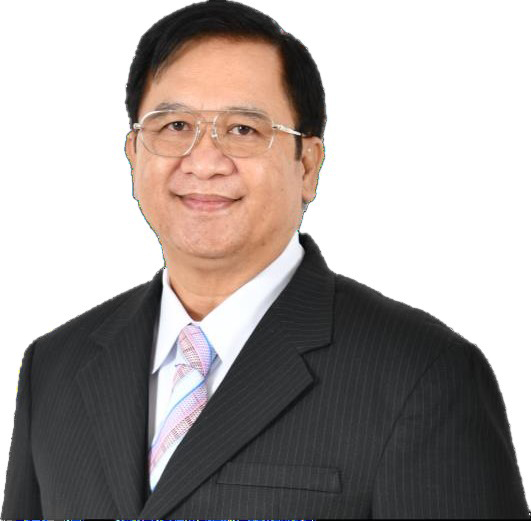GUEST COLUMNIST

By Lt. Gen. AURELIO B. BALADAD (Ret)
The Philippines finds itself at a crucial juncture regarding pension reform, particularly concerning the welfare of retired military and uniformed personnel (MUP). House Bill No. 8969, enacted on July 26, 2023, aims to address the intricate challenges faced by over 400,000 active MUP members and 250,000 pensioners, indirectly impacting approximately four million Filipinos. This article delves into the multifaceted issues surrounding this bill, exploring the diverse perspectives of stakeholders involved.
At its core, HB No. 8969 proposes a robust plan, including a guaranteed three percent annual salary increase for the first decade after its enactment, a mandatory retirement age of 57 years or upon accumulating 30 years of service, and survivorship pensions for eligible survivors. The pension of retired MUP and survivorship pension of qualified survivors shall be automatically indexed at a rate not exceeding 100 percent of the increase in the base pay of active MUP holding the same rank during the same year.
Two trust funds are established, one for the Armed Forces of the Philippines (AFP) and another for uniformed personnel services, managed by the GSIS. These funds are financed through mandatory contributions, government contributions, appropriations, property transactions, and government savings.
DOF Sec Diokno expressed dissatisfaction with the House's approach, stating it does not adequately prevent the impending financial crisis caused by unsustainable MUP pension benefits. Diokno reiterated his firm stance that mandatory contributions, including those already in service, and the elimination of automatic indexation are essential measures, asserting that these issues are non-negotiable.
Vice Admiral Ariston V Delos Reyes (Ret) writing to Congressman Raul Tupas, Chairman, Committee on National Defense and Security, House of Representatives, stated that “The military pension should remain noncontributory in consonance with the spirit and intent of Section 7, Article XVI of the 1987 Constitution which provides among others, that benefits for veterans shall be funded by the State. Veterans' benefits are deemed to include the AFP pension, the old age pension, and total disability pension all of which are noncontributory in nature.”. As it is based on the essence of the constitution, provisions that oppose this principle are considered unlawful. The integrity of the agreement between the government and MUPs upon their appointment/enlistment must be maintained.
The Philippine Military Academy Retirees Association, Inc (PMARAI) organized a Webinar “MUP: Issues and Updates” on Sept. 27, 2023 at the PMA Alumni Center, Camp Aguinaldo. Proscoro Ervin A Mundo, Professor of the UP Faculty of Management and Development Studies, was one of the invited panelists. He suggested that instead of extending the current BCDA law, he recommended transferring BCDA to the AFP Trust Fund. He pointed out that if military camps are included under the proposed BCDA extension law, it could reduce the funds available for the AFP trust fund. Currently, only 35 percent of BCDA's income goes to the AFP, and it is uncertain if there is an allocation for MUP pensions. He proposes a complete transfer of BCDA to the MUP Trust Fund. This would ensure all of BCDA's income, and approximately ₱1.45 trillion in assets, (including its personnel) support MUP pensions. This approach, he believes, would address funding challenges for the MUP pension system.
Congressman Salceda also said that he looks forward to having the assets of the RSBS (Retirement and Separation Benefits System) infused right away. However, Prof Mundo insinuates that remaining RSBS properties including MUP real properties are already small as most AFP real estate properties were donated lands; thus, they cannot be used other than for military purposes.
Diokno warned about a financial crisis due to growing pension costs, mentioning an alarming ₱14 trillion. Professor Mundo questioned the sources and methods behind these numbers, highlighting the lack of scrutiny.
Meanwhile, DND Sec Teodoro noted that, unlike other MUPs, AFP's strength will remain stable. And, as the AFP shifts to external defense the tendency is to lower the strength of the AFP.
VADM delos Reyes also raised that the pension of the CSAFP, and Chief PNP, both Salary Grade (SG) 30, should be based on SG 31 or one salary grade higher.
In our quest for long-term sustainability for our MUP pension system, let us never overlook the undeniable truth: our collective efforts will only thrive in the presence of a resilient, and, above all, fully motivated and professional AFP.
In essence, HB No. 8969 represents a commendable effort toward MUP pension reform. However, the complexity of the issues involved necessitates a comprehensive, inclusive dialogue. Transparent financial data, alignment with constitutional principles, and fair treatment across ranks must form the foundation of any viable solution. While the bill lays the groundwork, collaborative efforts and open discussions among all stakeholders are imperative to ensure a just, sustainable, and constitutionally sound MUP pension system for the Philippines.
(Lt. Gen. Aurelio B. Baladad (Ret) served as the 8th commander of the Eastern Mindanao Command, the 32nd commander of the 3rd Infantry (Spearhead) Division, and the former deputy chief of staff for Operations, J3 of the AFP. He is a graduate of Master in Development Management (with Dist) of AIM. He is now the VP for cooperative planning and marketing of PAFCPIC, a cooperative serving the active and retired AFP personnel.)